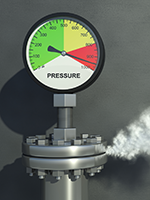Learn How to Take Staff Survey Preparation From Reactive to Proactive
“Why in the world did my staff member say this?” and “Why did my staff do that?” are two questions that no director of nursing services (DNS) wants to have when reading the Statement of Deficiencies and Plan of Correction (form CMS-2567) handed out by the state survey team at …










